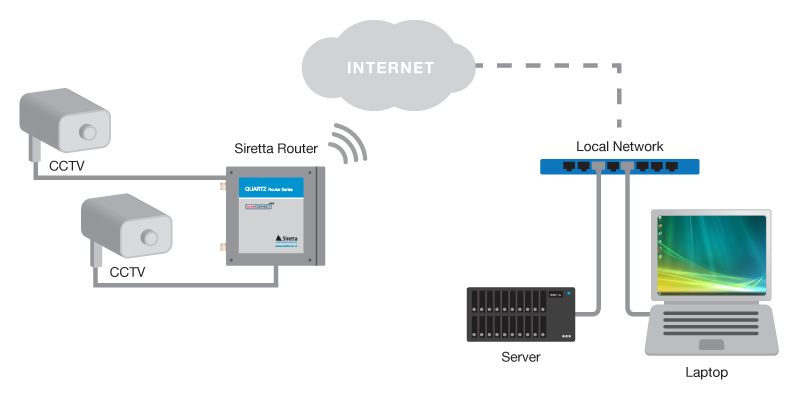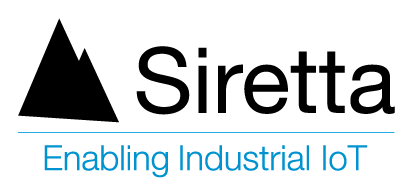Before looking at the constructs it is worth reminding ourselves of the key definitions as they relate to the products we are looking at. First, a Router which creates a network across peripheral devices giving network interface identification and location addressing. And secondly, a Modem which acts to connect a network and the devices on it to the internet, converting data into a form suitable for transmission sending secure data that can then be decoded reliably.
So, what should be considered when choosing an Industrial as opposed to a Consumer grade device? Our hunger for connectivity and consumption of data both in our business and personal life remains insatiable. It is easy to fall into the thinking, that when accessing data, or connecting to the wider world, that the differences in the hardware we use at home, and our business lives, is small. In networking, as in many other areas, this assumption is unsound and the debate on hardware choice continues.
“As households we possess a large number of Modem and Router solutions.”

The UK government statistics show that greater than 90% of households have an internet connection equating to an estimated 22 million installed bases. Additionally, a 2019 study from Deloitte suggests on average every home has around 10 connected devices. Therefore, consumer grade hardware is by design high volume and lower cost and in many instances the Internet Service Providers (ISP’s) offer it for free. Most ISP’s then choose to pursue a recurring revenue business model through the use of subscription services. By definition the hardware supplied is therefore optimized to use the minimum possible functionality and associated circuit and software design, as well as the lowest possible manufacturing cost in order to maximize revenue and profit. This is demonstrated when reviewing products comparative meantime to failure (MTF) as well as often being reflected in shorter warranties being offered.
We have all experienced slow speeds, connectivity outage or device failure, which, although frustrating, has an overall effect on a consumer household that is minimal. In the main our daily browsing habits are satisfied and happen quickly and safely with a consumer grade product. If the product fails, it is comparatively easy for the ISP to send a replacement for self-installation by the consumer albeit with the associated downtime associated with delivery.

Reliability of data flows and connection uptime is of primary importance and regarded as vital in that the risk of downtime is extremely costly both financially and with regard to reputation. The device choice needs to be based more around the application being supported, the environment from which the data flow originates and the infrastructure available.
Imagine the cost of connectivity loss to an Enterprise, Amazon as an example, for just a short period where you could measure the impact in millions of pounds, euros or dollars per hour. Similarly, hospitals and medical services require bullet proof connections. Stock markets and banks are always looking for marginal gains in connection speed where reliability and service availability also provide benefits that can also be measured in billions of pounds, euros or dollars.

In the examples above speed and reliability are pre-requisites. Yet, as we move up the Industrial IoT inflection curve there are many more applications where reliability, environmental tolerance and remote device management are of a higher priority than data transmission speed albeit with this still being a factor to be considered. Many devices are being deployed in harsh and remote environments and need to be able to cope with extreme temperatures and require low power consumption.
Connectivity infrastructure may not exist or be widely available meaning a cellular solution is required as the only option available. Monitoring the performance of remote oil pumps and drilling stations to ensure that schedules are maintained, that production of raw material is not interrupted due to faults and equipment breakdown, that automatic payment machines are operating, providing supervisory access to remote equipment in solar farms, control of electric vehicle charging, are all examples that require solutions that enable access to remote equipment with a robust and reliable connection.
As device connectivity can be affected by environmental and operating conditions Industrial and Enterprise applications require a more robust solution and consequently, the biggest difference between these and consumer grade product is that the consumer devices are designed to operate in very different environments and often have shorter life spans which is reflected in their price point and warranty.
Industrial and Enterprise grade devices tend to use higher grade components specifically designed to cope with harsh environments, operate in wider temperature bands and will often incorporate complex power utilization circuitry and software. They will operate in a much wider environmental spectrum and offer associated longer and wider warranties. In fact, many consumer grade warranties may specifically exclude use in Industrial or Enterprise application.
So, in summary, there are many differences between industrial and consumer grade devices, and these will result in a price point trade off. As already outlined, the number of additional features and increased quality of construct required for Industrial and Enterprise applications means that devices will have a different and higher overall specification and associated value proposition to those produced for the consumer market only. Consumer devices produced for the major ISP’s are built in high volumes to a strict budget and these devices are often provided free of charge with 12 or 18 month service contracts.
Industrial grade modems and routers allow you to:
- Reduce risk of deployment with tried and tested reliable industrial solution.
- Work in a wide operational, geographic and environmental spectrum
- Quickly develop and deploy into your application to provide internet access to remote equipment
- Achieve better response times and equipment reliability without adding any complicated system infrastructure
- Have a system agnostic design that supports any type of equipment or operating system
- Automatically detect the network and perform ongoing network monitoring
- Have multiple device options that allow for a single footprint and form factor solution
- Ability to provide end equipment with all connectivity and upgradability options
- Achieve cost savings and improvements in efficiency by reducing costly engineer callouts,
- Obtain improved reports on an entire estate, and monitor high usage areas to provide better maintenance
The decision to buy a consumer or industrial grade device really comes down to risk, environmental and power constraint factors. The higher the importance of a solid reliable connection, the further you will need to lean towards an industrial product. Ask yourself how much I value my data, and how much benefit does connection and reliability add to my business.
Siretta ‘The Industrial IoT Company’ offers a range of Industrial Modems, Industrial Routers and managed network solutions. Their range of industrial low and ultra-low power Modem solutions are a family of cellular enabled Modems which have been designed to an industrial specification to allow an easy connection for remote devices over the internet. Their Industrial Modem and Router offering enables the setup, configuration, monitoring and management of your industrial IoT network, in order to provide reliable, and stable, connection solutions, that in turn can be monitored, and controlled, from a central location.
Siretta helps you to identify the ideal Industrial Modem and Industrial Router solution for your application through their unique Modem Selector Tool and Router Selector Tool filtering to your exact requirements.
Siretta are a perfect partner and a leading manufacturer and developer of IoT products, IoT software and IoT Industrial and business to business applications with extensive knowledge, and a focus on Industrial grade cellular technologies.

